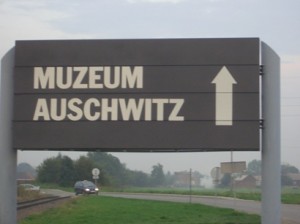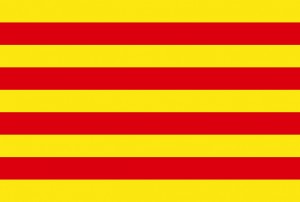

Global Citizenship blog
 The ‘Lessons from Auschwitz’ Scottish pupil group visits organised by the Holocaust Education Trust in September and October continue to attract positive media coverage. An example is the article in the Edinburgh Evening News entitled ‘Teenagers face the horror of Holocaust’, which describes the experiences of school pupils in the East of Scotland groups.
The ‘Lessons from Auschwitz’ Scottish pupil group visits organised by the Holocaust Education Trust in September and October continue to attract positive media coverage. An example is the article in the Edinburgh Evening News entitled ‘Teenagers face the horror of Holocaust’, which describes the experiences of school pupils in the East of Scotland groups.
In early October around 60 Scottish teachers took part in a Holocaust Education workshop day organised by Learning and Teaching Scotland, which focused on the variety of learning and teaching approaches that teachers might adopt to teach about issues such as the Holocaust, genocide, and human rights. Delegates benefitted from the participation of Education staff from the Holocaust Memorial Day Trust and the Anne Frank Scotland charity. The products of the day are being shared in a national group on Glow, the Scottish schools broadband intranet service. LTS will continue to support these active Holocaust educators, in areas such as collaborative production of learning resources.
MoreScottish secondary school pupils involved in the Eco Schools Scotland programme ran a conference at the Scottish Parliament this week, at which Schools Minister Keith Brown was the invited guest speaker. Events such as these provide a means of showcasing the interest and action of young people concerned about environmental issues such as Climate Change.
A BBC web article “Malawi windmill boy with big fans” provides an update on the Malawian teenager who built electric windmills from junk to provide an electricity supply for his village. A book telling his story, entitled “The Boy who harnessed the Wind“, is available and may inspire others to innovate.
MoreWin a Flip Camera for your school
Learning and Teaching Scotland is currently developing a new Primary Climate Change website. It will bring together a series of web-based activities which will allow pupils at First and Second Stages to explore and learn about climate change, how it will affect them and what they can do about it.
We are looking to have some demonstration clips built into the site. These will include recording weather, the water cycle, movement of warm and cold air, and adaptations to change. We are challenging Secondary school pupils to come up with innovative and creative approaches to this.
The shorts can be up to a maximum of 1 min and can be shot on anything from a camera phone to home video or professional equipment, or can be done in animation.
Contributions must be emailed in or uploaded to the GLOW SDE group by 04 December 2009. All will be exhibited on the GLOW SDE group and the most suitable, from an educational point of view, will be incorporated into the Primary Climate Change website.
Flip cameras will be awarded to those schools whose clips are used on the Climate Change website.
For more information on the experiments and activities please contact Helen Winton, [email protected]
More LTS is inviting applications for a SCIPD group study visit to Catalonia, Spain, which is targeted at Scottish education professionals working in Gaelic education. The group will investigate minority language provision and development, as bilingual working and immersion techniques in Catalonia are well-established. Full details and application forms are on the LTS International Education website, and the closing date is Friday 16th October.
LTS is inviting applications for a SCIPD group study visit to Catalonia, Spain, which is targeted at Scottish education professionals working in Gaelic education. The group will investigate minority language provision and development, as bilingual working and immersion techniques in Catalonia are well-established. Full details and application forms are on the LTS International Education website, and the closing date is Friday 16th October.
A recent BBC story “Gaelic pupils ‘do well’ at school” reported on the view of Highland Council that bilingual Gaelic and English education produced good results among young people.
The Scottish Government recently announced additional funding for Gaelic education, recognition of its contribution to Scottish culture.
MoreTwo more examples of International Education in Scottish schools, where they engage in collaborative work with overseas partner schools to benefit the learning of their pupils:
Glaitness School in Orkney has a good blog which describes the range of activity going on; for example, a link being developed with a school high up in the Rocky Mountains of the USA, a very different environment from the home of the Orkney children.
And Meldrum Primary in Aberdeenshire is featured in a TESS article this week which focuses on their EU Comenius school partnership project with schools in Germany, Spain, Slovenia and Slovakia.
Both schools using a variety of means to expose their children to the wider world and the place of Scotland and Scots within it.
MoreThe European Day of Languages took place last week, and an article in The Scotsman reported on developments such as the Confucius Classrooms programme (supporting Mandarin), the growth of Gaelic learning, and the provision of Latin.
The European Commission’s Translation department (Directorate-General for Translation, DGT) has developed an animated game for young people to increase interest in European languages, and LinguaGo is now on the EuropaGo website at http://europa.eu/linguago/ . The aim of the game is to navigate a language maze and collect parcels. To get through the maze, players need to guess the names of the European languages and steer clear of mischievous spiders. As they progress, they will also have to play the game in languages other than their own.
More The Scottish Government has announced funding to the National Trust for Scotland, to enable more school pupils to make educational visits to historic sites at Bannockburn, Culloden and the Robert Burns Birthplace Museum. These visitor attractions offer educational experiences which assist students to interpret historic events and contexts. Knowledge about about their own heritage and culture will help young Scots to understand their own country and its place in the modern world.
The Scottish Government has announced funding to the National Trust for Scotland, to enable more school pupils to make educational visits to historic sites at Bannockburn, Culloden and the Robert Burns Birthplace Museum. These visitor attractions offer educational experiences which assist students to interpret historic events and contexts. Knowledge about about their own heritage and culture will help young Scots to understand their own country and its place in the modern world.
This kind of support enhances the legacy of the Homecoming Scotland 2009 programme, which has helped to stimulate interest among school pupils about the history of their country.
More
Find us on